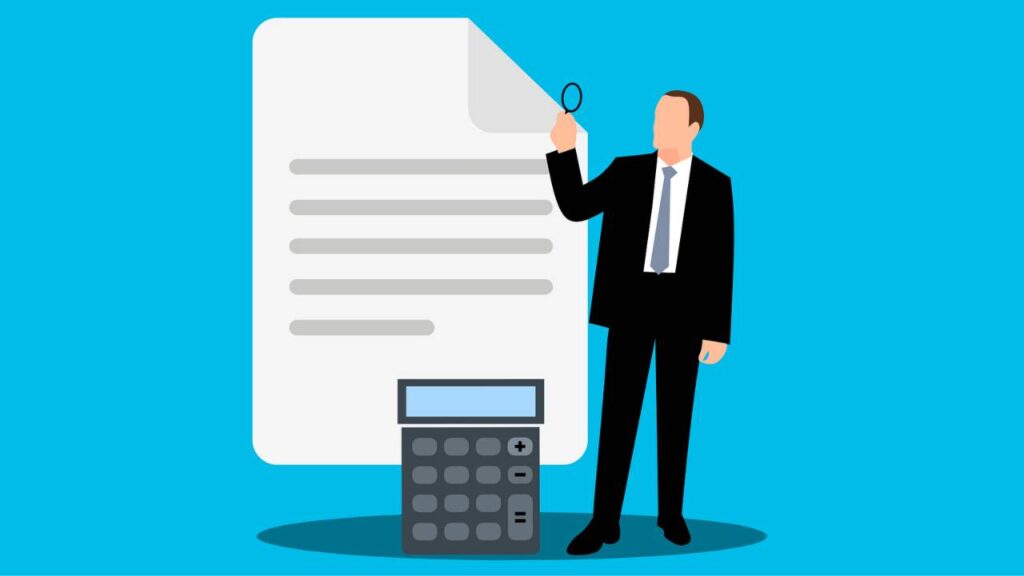Small businesses face unique financial challenges. As a small business owner, your expertise likely lies in your products or services, not in bookkeeping or tax preparation. Hiring an accountant can greatly benefit your business by providing expert financial guidance, ensuring compliance with tax obligations, and ultimately saving you time and resources.
Accountants bring a wealth of knowledge and experience that goes beyond basic number-crunching. They offer insights into efficient financial practices and strategic planning that can lead to growth and sustainability. Their expertise enables you to identify and remove barriers to business growth, helping you make informed decisions that align with your business goals while avoiding costly mistakes.
In addition to financial management, hiring an accountant allows you to focus on what you do best – running your business. With an expert handling complex financial tasks, you can devote more time to innovation and customer service, fostering a thriving business environment.
Understanding the Role of an Accountant in a Small Business
Accountants play an essential part in small businesses by handling financial records and ensuring compliance. Their expertise helps manage cash flow and prepare financial statements efficiently.
Key Responsibilities
Accountants in small businesses have several crucial tasks. They maintain accurate financial records, ensuring all transactions are well-documented. Preparing financial statements, such as balance sheets and profit and loss accounts, is a critical function. These documents provide insight into your business’s economic health. An accountant also ensures compliance with tax regulations, helping you avoid penalties. This involves preparing and filing the necessary tax returns on time.
Another important responsibility is advising on financial strategy. Accountants help optimise your business’s financial operations, providing guidance on budgeting and investment opportunities. They can identify areas where costs can be reduced, ultimately improving profitability. Accountants play a vital role in safeguarding your assets through careful monitoring of expenses.
Necessity for Financial Management
Effective financial management is vital for the success of any small business. Accountants manage your cash flow, ensuring that you can meet your obligations and maintain solvency. They track incoming and outgoing funds, providing insights into your liquidity position. By keeping an eye on cash flow, accountants help prevent cash shortages that can disrupt operations.
Additionally, accountants assist in preparing for audits, helping organise financial records and documentation. This preparation minimises stress during the auditing process. They also help in forecasting, projecting future revenues and expenses to guide strategic planning. Through analysis of financial data, accountants enable informed decision-making, bolstering your business’s ability to grow and thrive.
Financial Record-Keeping and Reporting

Efficient financial record-keeping and clear reporting are essential for the smooth operation of your small business. These processes ensure compliance with regulations, help track performance, and support informed decision-making.
Accurate Bookkeeping Services
Efficient bookkeeping is vital for managing your finances. By employing professional bookkeeping services, you can ensure a high level of accuracy in accounting, which is key to success. Accurate records provide a reliable foundation for financial analysis and help prevent costly errors.
Professional bookkeepers maintain meticulous records, tracking all transactions and categorising them correctly. This not only facilitates the preparation of financial reports but also enhances transparency. Accurate bookkeeping is invaluable when it comes to audits or financial reviews, further contributing to financial clarity in your business.
Preparing Financial Statements
Producing clear financial statements is crucial for understanding your business’s financial health. These documents, including balance sheets, income statements, and cash flow statements, provide insights into profitability, liabilities, and overall financial status. Accounts can prepare these statements regularly, allowing you to monitor trends over time.
Using these structured reports, you can identify areas needing improvement or investment. They are also essential when seeking loans or investment, as they demonstrate financial stability and profitability to lenders and investors. Accurate financial statements enable targeted decision-making, supporting your long-term business strategy.
Accounting Software Integration
Integrating accounting software with your financial processes offers numerous advantages. Utilising technology streamlines bookkeeping and financial reporting, enhancing efficiency and reducing manual errors. Accounting software can automatically track and categorise expenses, reducing time spent on data entry.
Many software options offer real-time financial tracking and reporting. This allows you to access up-to-date financial information and generate customised reports, supporting agile decision-making. Moreover, these tools can integrate with other business systems, facilitating seamless operations and enhancing overall productivity in managing your finances.
Taxation and Compliance
Effective management of taxation and compliance is critical for small businesses. It involves accurate tax returns, strategic tax planning, understanding deductions, managing liabilities, and ensuring that all requirements are met efficiently.
Navigating Tax Returns and Planning
Handling tax returns can be daunting for small business owners. Engaging professionals like the ones at Coffey & Co Accountants can provide substantial relief. They offer expert assistance with year-end accounts and monthly services that help streamline your tax-related tasks. By trusting professionals, you can ensure that your tax returns are filed accurately and in a timely manner, reducing the risk of errors and penalties.
Tax planning is another vital aspect that can enhance the financial health of your business. Accountants can provide insightful advice on potential tax-saving opportunities tailored to your business needs. By proactively planning your taxes, you can optimise tax efficiencies and make informed decisions about your financial future.
Understanding Tax Deductions and Liabilities
Tax deductions can significantly reduce your taxable income, but knowing which deductions you can claim is crucial. You need an accountant to guide you through the maze of eligible deductions, ensuring you maximise your claims. Whether it’s office expenses, travel costs, or employee wages, your accountant can identify the right areas to help save money.
On the other side are tax liabilities – the amounts your business owes in taxes. Mismanaging these can lead to severe financial issues. An accountant will assess your liabilities accurately to avoid underpayment or overpayment. This aspect of compliance can protect your business from legal problems and financial strain.
Managing PTIN Requirements
A Preparer Tax Identification Number (PTIN) is necessary for professionals preparing federal tax returns for compensation. If you hire someone to handle your tax matters, ensure they have a valid PTIN. This small, but essential, compliance requirement ensures that whoever is managing your taxes is authorised and accountable.
Your accountant will manage PTIN-related matters efficiently, guaranteeing they meet all necessary tax authorities’ standards. This level of compliance not only assures you of trusting a legitimate professional but also enhances the quality and reliability of the tax services your business receives.
Enhancing Business Financial Health

Hiring an accountant can play a crucial role in maintaining and improving the financial health of your small business. Their expertise assists in creating effective budgets, identifying and avoiding financial pitfalls, and assessing cash flow issues with precision.
Implementing Effective Budgeting
An accountant helps you develop a realistic and efficient budget by analysing your current financial situation and predicting future trends. This enables you to allocate resources wisely, ensuring that you meet your business’s operational needs while planning for growth. A well-implemented budget provides a roadmap for financial success and resilience against potential economic challenges. Regular budget reviews conducted by your accountant allow adjustments to be made in real-time, enhancing financial stability and ensuring that your business remains on the right track.
Avoiding Costly Financial Mistakes
With an accountant’s guidance, you can identify and avoid financial mistakes that could hurt your business. They offer insights into regulatory compliance, tax requirements, and potential financial risks. By maintaining accurate financial records, they help you avoid penalties and fees, preventing cash flow disruptions. Accountants provide clarity on complex financial matters, reducing error margins and ensuring you make informed decisions. Their expertise in financial analysis and reporting means you gain valuable insights into your business operations that help steer clear of pitfalls and costly errors.
Assessing Cash Flow Problems
Cash flow problems can threaten the stability of your business, and an accountant plays a vital role in identifying and addressing these issues. They meticulously monitor your cash inflows and outflows, ensuring you maintain sufficient liquidity to meet your obligations. By analysing trends and identifying discrepancies, they help you foresee potential shortfalls and develop strategies to mitigate them. This can include advising on expense management, optimising inventory levels, or improving collection processes. Their informed approach transforms cash flow challenges into manageable aspects of your business operations.
Payroll Management
Effective payroll management is crucial for maintaining employee satisfaction and ensuring compliance with legal standards. This involves accurate payment processing as well as meticulous handling of deductions and record-keeping.
Ensuring Accurate and Timely Payments
The importance of effective payroll management cannot be overstated. Timely and accurate payments are critical in fostering trust and reliability within your team. By hiring a professional accountant, you ensure that your employees receive their wages promptly and correctly.
Your accountant brings expertise that reduces the risk of errors, such as overpayments or incorrect tax withholdings, which could lead to costly disputes or penalties. They can automate and streamline payroll processes, reducing the administrative burden on your business.
Furthermore, an accountant keeps up with the latest regulations and laws, which helps you avoid non-compliance issues that could lead to fines. With their support, you can focus on other key areas of your business, knowing that payroll is handled with precision. Investing in a knowledgeable accountant ensures peace of mind when managing payroll responsibilities.
Deductions and Record-Keeping
Managing deductions requires attention to detail and understanding of tax regulations. Accountants possess the knowledge necessary to handle statutory deductions such as income tax, national insurance, and pension contributions with ease.
Proper record-keeping is another benefit an accountant provides. By maintaining detailed payroll records, they help in auditing processes and ensure compliance with all legal requirements. Accurate records prevent discrepancies and facilitate smoother financial planning and reporting.
Additionally, an accountant can identify and implement tax-saving opportunities, providing financial benefits to both employees and employers. By entrusting these responsibilities to a skilled accountant, you can enhance the efficiency of payroll management and maintain transparency in all payroll-related activities.
Strategic Financial Planning and Analysis

An accountant can aid your business by developing strategic financial plans and conducting thorough financial analysis. This ensures efficient allocation of resources and maximises profitability.
Developing Business Strategies
An accountant can significantly contribute to developing effective business strategies by analysing your financial data. They identify trends and economic patterns which inform decision-making processes. Through detailed evaluations, accountants help you set achievable financial goals and align them with your business objectives.
This can involve creating budgets that optimise spending and highlight savings opportunities. With their financial acumen, accountants ensure that your financial plans are robust and resilient to market fluctuations. Additionally, they provide guidance on investment opportunities that can fuel growth and enhance profitability.
Performing Financial Analysis
Financial analysis performed by an accountant offers invaluable insights into your business’s financial health. This includes evaluating financial statements to assess liquidity, profitability, and cash flow management. It allows you to pinpoint areas that require improvement or cost reduction, helping you save money in the long term.
Moreover, accountants utilise various analysis techniques to measure performance against industry benchmarks. This enables you to gauge how well your business is performing relative to competitors. Through accurate forecasting, they help anticipate future financial needs, ensuring your business remains well-positioned in a competitive market.
Selecting and Working with an Accounting Firm or Professional
Partnering with the right accounting firm or professional entails assessing costs, choosing a qualified accountant, and establishing a solid working relationship. You’re equipping your business with the financial acumen necessary to thrive.
Evaluating the Cost of Hiring an Accountant
Evaluating the cost is a critical step when considering accounting services. It’s essential to balance the potential benefits against the expense involved. Typically, accounting firms charge based on the complexity of tasks, such as tax filing, payroll management, or comprehensive financial planning.
You should request detailed quotes from multiple firms, outlining all associated fees to avoid hidden costs. Understanding what each service entails helps ensure you’re not paying for unnecessary services.
Comparing costs across different firms provides a clearer picture and helps you make an informed decision. Remember, the cheapest option isn’t always the best if service quality is compromised.
Choosing a Certified Professional Accountant (CPA)
Choosing a Certified Professional Accountant is crucial as they bring expertise and credibility to your financial affairs. CPAs are equipped with specialised knowledge to assist in making informed business decisions. Verification of credentials, such as membership in accounting bodies and relevant experience, is essential.
Tailor your search to CPAs familiar with your industry, as they understand sector-specific challenges and opportunities. You can verify their professional standing with relevant certifications through their registration numbers and reviews from other businesses.
An accountant who communicates well and is transparent with processes will provide invaluable insights, aiding your business growth. Be selective in your choice to ensure it aligns with your requirements and expectations.
Establishing Effective Communication
Effective communication with your accountant is integral in forming a productive partnership. Establishing clear communication channels ensures you can discuss financial matters easily and regularly. Set expectations for frequent updates and reviews, tailored to your business needs.
Mutual understanding is facilitated by regular meetings and open dialogue, enabling you to address issues promptly and adjust strategies as needed. Make sure your accountant can explain complex details in a manner that is clear and comprehensible.
Openness to feedback and prompt response to queries are vital. A well-informed accountant who stays abreast of changes in regulations will be a significant asset, ensuring your business remains compliant and financially healthy.
Conclusion
Hiring an accountant for your small business can provide significant benefits. It offers you peace of mind, knowing that your financial matters are in capable hands. This allows you to focus more on growing your business rather than getting caught up in paperwork.
The expertise of an accountant helps in managing finances efficiently. You can rely on their skills to keep your accounts accurate and up to date. They ensure that your financial documents are organised, which is essential for making informed decisions.
An accountant also aids in compliance with ever-changing tax laws and regulations. This reduces the risk of errors and potential penalties. Their guidance can be invaluable in identifying opportunities for tax savings and optimising financial performance.
Additionally, an accountant’s insights support sound financial planning and strategy. By analysing trends and financial data, they help you plan for the future. This strategic assistance can be crucial for achieving your long-term business goals.
